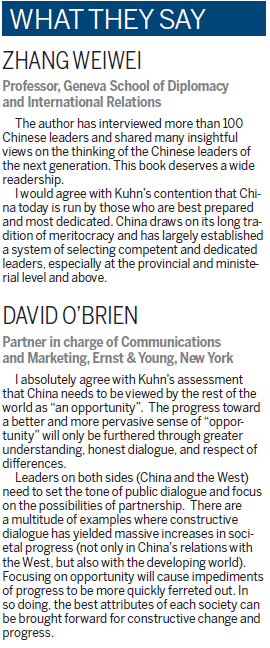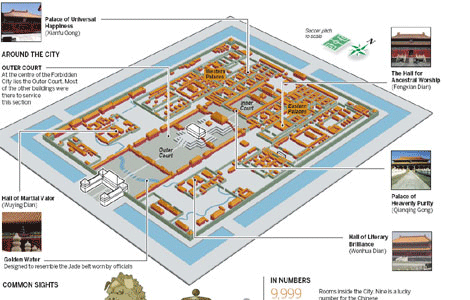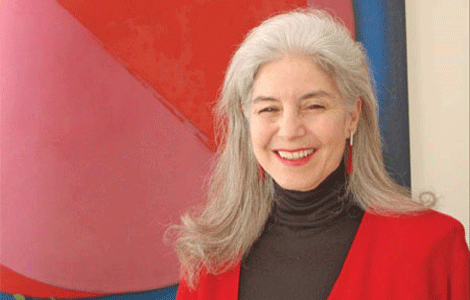The myth buster
Updated: 2011-09-02 11:12
By Chitralekha Basu (China Daily European Weekly)
"For over 20 years I have been bringing the true story of China, as I see it, to the world. My long track record, both public media and private activities, are well known," Kuhn says.
Indeed, Kuhn, who has a PhD in anatomy and brain research from the University of California at Los Angeles and is an MIT Sloan School of Management alumnus, is far better known as a media personality - a contributor to CNBC, Euronews, BBC, Bloomberg, BusinessWeek and Forbes and the producer-host of the popular TV series Closer To Truth, and the award-winning documentary In Search of China.
What marks out his writing from the glut of books on the Chinese establishment from a foreigner's perspective is the combination of empirical evidence and a rare sensitivity with which these are analyzed. Some of his ideas may seem startlingly radical, but Kuhn also provides the perspective and the insight of an old China hand to make sense of them.
For instance,he suggests that China in the last few years has acquired democratic characteristics and nuances that are just as good as some of the world's functioning democracies.
"The freedom of the Chinese people in their personal lives and social structures has expanded enormously. I see continuing progress as the CPC encourages "intra-Party democracy' and the Chinese people increasingly participate in the process of governance, such as through new media," Kuhn says.
 |
"I would say that China's leaders have a visionary goal, but China's democracy is a unique experiment still early in its developmental progress, the outcome of which we may not know for decades," Kuhn says. Rejecting the "Left/Right" tag, Kuhn prefers to call the Chinese government an "optimization government" as epitomized by Deng Xiaoping's black cat/white cat aphorism, (as long as the cat can catch mice, it matters not what color its coat is).
David O'Brien, partner in charge of communications and marketing at the accounting firm Ernst & Young in New York, feels that what marks Kuhn apart from fellow China-watchers is the "subtlety in his commentary on the societal differences between China and the West to help build a bridge of understanding".
On one hand, O'Brien says, Kuhn traces the evolution of Chinese leadership from its founding fathers to the present generation, and in doing so "reflects both the progress and growing complexity of China's government and business institutions taking their role on the global stage". On the other, he "outlines the breadth of reform and applies his analysis to the critical topics of culture, banking reform, healthcare, education, media, foreign policy and political reform. The breadth of analysis is very bold."
For instance, Deng's notion of "socialism with Chinese characteristics" - the maxim defining the onset of reforms in 1978 that still form the cornerstone of economic policies - has, Kuhn contends, taken on yet more color and dimensions since its inception. "What this now means is fostering equality and fairness, and posing a utopia of abundant material goods in the far future - not a rigid economic system of collective ownership and central planning," Kuhn writes, clarifying that "the Party's role in leading China is more fundamental than any specific socialist or communist precept it espouses".
Not surprisingly, Kuhn's optimism about China's future and his faith in the Chinese leadership ("first-rate in comparison to their international peers") is often read as propaganda on behalf of the Chinese government.
Kuhn says he would normally welcome such criticism because ultimately it focuses attention "on China and its complexities". But recently, after a journalist, Paul Gregory, criticized him on Forbes.com, calling him "a paid advisor to the Chinese government", Kuhn drafted a rejoinder, which he let China Daily have a look at before its publication.
He writes: "I am indeed an advisor to the Chinese government, and have been for over 22 years, but Gregory trumpets that I am paid when I am not. I am not being paid by the Chinese government; I have never been paid by the Chinese government. (I joke that when I needed the money, China didn't have any, and now that they have money, I luckily don't need any.) Full disclosure: I am paid by foreign companies that do business in China.
"In fact, my critique of China is directed at China and its leaders, to help China improve, not to fool foreigners. A true friend tells the truth. And this truth is in plain sight and not hiding: I assert that for the CPC to maintain its ruling position it must expose its own errors with candor and completeness."
Indeed, reading Kuhn's book, one finds that China's failings in certain areas for example its inability to maintain a squeaky-clean image in the international arena when it comes to dealing with pollution is not swept under the carpet.
"I do not seek to beautify China or be balanced in my approach. To the best of my always-limited capacities, I seek truth, wherever it falls," Kuhn says.
E-paper

Unveiling hidden treasures
The Forbidden City, after the Great Wall, is the most recognized tourist site in China.
Short and sweet
Game for growth
Character reference
Specials

China at her fingertips
Veteran US-China relations expert says bilateral ties have withstood the test of time

The myth buster
An outsider's look at china's leaders is updated and expanded

China in vogue
How Country captured the fascination of the world's most powerful fashion player
